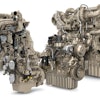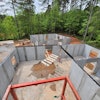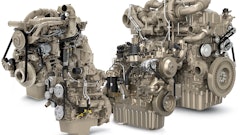Seventh extension to TEA-21 spurs AEM to urge Congress to make highway and transit legislation a top priority
In the face of the recent seventh extension to the Transportation Equity Act for the 21st Century (TEA-21), the Association of Equipment Manufacturers (AEM) is urging the House and Senate to quickly complete action on critical reauthorization of federal highway and public transportation programs. This reauthorization legislation will set guaranteed funding levels for highway construction and transit capital investment for the next several years.
For nearly two years, Congress has been unable to reauthorize the Transportation Equity Act for the 21st Century (TEA-21). Federal highway and public transportation programs have operated under six extensions, with the most recent expiring May 31.
"Congress needs to pass a long-term highway/transit bill and end the nearly two years of short-term extensions of the program," says AEM President Dennis J. Slater. "The overwhelming support that respective bills have received in the House and Senate should provide momentum for a conference committee to reconcile the differences between the two bills."
At the time of this writing, there was no deal yet set on the multi-year transportation bill and Congress had passed its seventh extension since Sept. 30, 2003. The Senate approved the extension on May 26 by a voice vote; the house passed it the night before. Without the stopgap, transportation programs would have lapsed on May 31.
The Senate and House have approved different versions of a multi-year transportation bill. On May 26, both chambers named their members of the conference committee that will reconcile differences between those two bills.
Stopgap Seven provides an additional $2.8 billion in highway contract authority which brings the total to $25.5 billion since fiscal year 2005 began last Oct. 1.
Future highways will face challenges, says ARTBA
No matter how technologically advanced the world's roadways become in the future, government officials, planners, automobile manufacturers and motorists will need to consider the safety implications for roadway construction workers who will build that infrastructure, the American Road & Transportation Builders Association's (ARTBA) top safety expert told participants attending an international conference on highway safety, held May 30-31 in Stuttgart, Germany.
The conference,"SAFE Highways of the Future," featured speakers from more than 10 countries representing organizations including major automobile manufacturers, government ministries, national automobile clubs, intelligent transportation system (ITS) manufacturers and other leaders in developing futuristic roadway technologies.
"Nearly all construction on roadways in North America, Europe and Asia will take place on existing infrastructure, exposing workers and motorists to the hazardous environment of construction work zones," ARTBA Vice President of Safety & Education Brad Sant says. "The safety and health of roadway construction workers is not just a concern for their employer. All of those involved in roadway development must consider safety implications for workers at all phases of the project."
Sant, who has more than 15 years of safety experience, explained that ITS systems are being used with increasing frequency during roadway construction operations to provide motorists with up-to-date information regarding delays, detours, construction operations and the status of roadway surface conditions. Other technologies are being used to better separate workers from traffic, such as portable barriers, he says.
The challenge, Sant says, is to balance the concerns of traffic engineers who want a safely designed roadway, motorists who want to minimize construction-related delays and contractors who want to protect their workers in these sites. According to Sant, this can only be accomplished when owners, designers and engineers understand, consider and provide allowances for safe construction processes. "Safety First" not only means safety is a top priority; it also means safety for all affected parties must be the first consideration when developing roadway improvement plans, Sant says.
Nealco acquires I-R Sealcoating Product Line
The Ingersoll-Rand sealcoating product line has been acquired by Nealco Equipment, LLC, a privately held company in Shippensburg, PA.
Nealco Equipment has acquired the intellectual property and inventory related to the Ingersoll-Rand Blaw-Knox sealcoating product line, formerly known as Neal Mfg. Nealco Equipment is an affiliate of Shipco Pumps, which has significant experience in tank manufacturing and pump production.
Nealco will immediately begin supplying service parts for the products and will begin production of asphalt sealcoating equipment in the next few months.
Daewoo Heavy Industries becomes Doosan Infracore America
Doosan Heavy Industries has completed its purchase of the controlling interest of Daewoo Heavy Industries & Machinery in Seoul, Korea. As a result of the purchase, Daewoo Heavy Industries America has formally changed its name to Doosan Infracore America. The name change, however, only applies to the corporate entity. All product and product lines will retain the Daewoo name.















